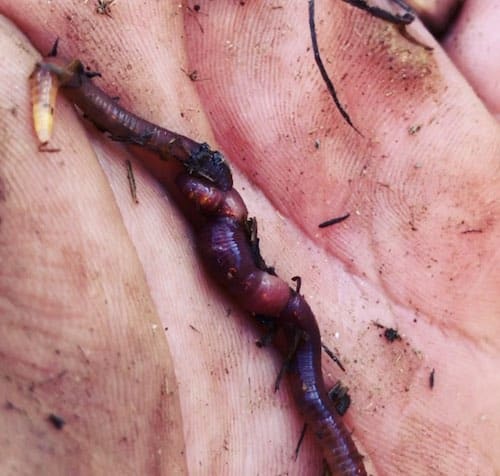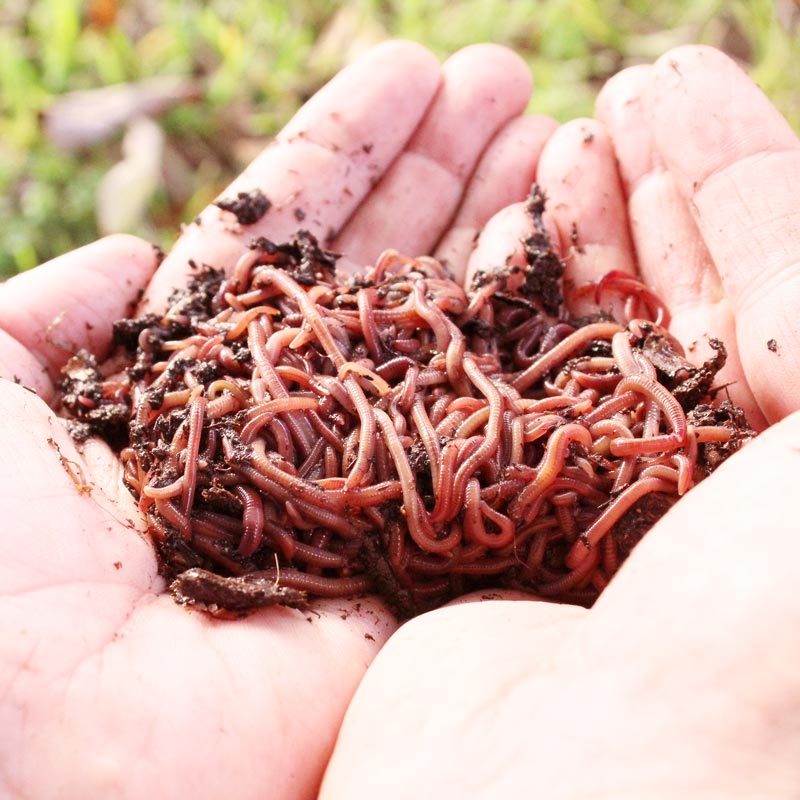The Unbelievable Globe of Red Wigglers: Boost Your Dirt Fertility Today
The function of red wigglers, or Eisenia fetida, in boosting soil fertility is a subject of expanding passion among garden enthusiasts and agricultural professionals. These little yet efficient organisms transform organic waste into important worm castings, significantly boosting dirt health and wellness and advertising lasting practices. As we explore the advantages of vermicomposting and the sensible steps to develop a reliable worm bin, the prospective effect of these worms on your gardening success comes to be significantly evident. Understanding the nuances of their treatment and application may just transform the method you approach dirt management. What insights can be gained from incorporating these amazing animals into your horticulture regimen?
Comprehending Red Wigglers
Red wigglers, clinically called Eisenia fetida, are a species of earthworm that play an important function in improving soil fertility. These worms grow in organic-rich atmospheres, such as compost heap and decaying plant material, where they consume organic waste and secrete nutrient-dense castings. Their unique composition, including a fractional body and a clitellum, permits them to duplicate quickly and successfully process big amounts of organic matter.

The ecological value of red wigglers extends beyond mere waste processing; they add to the dirt food internet, fostering a varied area of microbes that additionally improve soil health and wellness. Understanding the biology and habits of red wigglers is essential for using their complete potential in sustainable farming and gardening practices.
Benefits of Vermicomposting
(Red Wiggler Express)Harnessing the power of red wigglers with vermicomposting deals many benefits that significantly improve soil health and wellness and fertility. Among the main advantages is the production of nutrient-rich worm castings, which are an exceptional all-natural plant food. Red Wiggler Express. These spreadings contain essential nutrients like nitrogen, phosphorus, and potassium, advertising robust plant development and boosting crop yields
The visibility of worm spreadings boosts dirt structure, permitting for better water retention and drainage. Red wigglers help damage down organic matter, speeding up decay and recycling nutrients back into the soil.
Vermicomposting likewise fosters microbial activity, which is crucial for a healthy dirt ecosystem. Beneficial microorganisms flourish in the existence of worm spreadings, assisting in the breakdown of organic materials and improving nutrient schedule to plants.
Finally, vermicomposting works as a reliable waste management service, reducing land fill waste by recycling kitchen area scraps and other organic materials. This not only adds to ecological sustainability however additionally advertises a circular economy within gardening and farming.
How to Establish a Worm Bin
Setting up a worm bin is a straightforward process that can substantially boost your composting efforts. Begin by choosing a proper container, which can range from a readily readily available worm bin to a simple plastic or wooden box (Red Wiggler Express). Guarantee the container has appropriate air flow; little openings in the lid and sides will help with air blood circulation
Following, create a bed linens layer to supply a comfy setting for the red wigglers. This can be made from shredded paper, cardboard, or coconut coir, moistened to a moist, sponge-like uniformity. Load the container to about one-third full with this bedding material.
Once the bed linens is prepared, it's time to introduce the worms. Red wigglers prosper in natural waste, so location them delicately onto the bedding. Cover the worms with a light layer of extra bed linens to assist them acclimate.
Feeding Your Red Wigglers
Providing the right food for your red wigglers is vital for their wellness and the performance of your composting system. Red wigglers grow on a diverse diet, largely containing natural materials such as vegetables and fruit scraps, coffee grounds, and shredded paper. These materials not only supply essential nutrients however likewise add to the microbial task in the worm bin, which is crucial for the worms' food digestion.
It is vital to avoid specific foods, such as milk items, oils, and meats, as these can draw in bugs and produce undesirable smells. Additionally, citrus peels and overly zesty foods should be limited due to their possible to damage the worms. A balanced strategy to feeding entails monitoring the quantity of food introduced to the bin, making certain that it is eaten within a sensible period to stop excess waste buildup.
To advertise ideal food digestion, it is helpful to slice or shred larger food items prior to including them to the container. This technique boosts the area for microbial activity, promoting quicker decomposition and improving the total effectiveness of your composting system. Frequently observing the worms' feeding practices will help you change their diet plan as required.
Making Use Of Worm Castings in Your Garden

(Red Wiggler Express)Integrating worm castings right into your yard can be accomplished by mixing them right into the soil or utilizing them as a top clothing. The slow-release nature of these castings makes certain that nutrients are readily available to plants over a prolonged period, minimizing the demand for synthetic plant foods. In addition, worm spreadings include beneficial bacteria that promote healthy soil ecological communities, boosting the total durability of your garden.
To make the most of the benefits, goal to apply approximately one part worm spreadings to 3 components soil in your planting beds. Normal applications can bring about enhanced crop returns and healthier plants, making worm spreadings a vital source for both novice and knowledgeable garden enthusiasts alike. By using this natural amendment, you can cultivate a growing garden while contributing to lasting horticulture methods.
Final Thought
In final thought, red wigglers exhibit the vital role of vermicomposting in enhancing soil fertility. Their capability to convert organic waste into nutrient-rich spreadings dramatically Go Here enriches soil framework and supports microbial diversity. Developing a vermicomposting system not just promotes sustainable horticulture practices however also contributes to environmental health and wellness. By leveraging the benefits of these exceptional organisms, gardeners can grow extra efficient and resilient environments, inevitably promoting a more sustainable method to farming and horticulture.